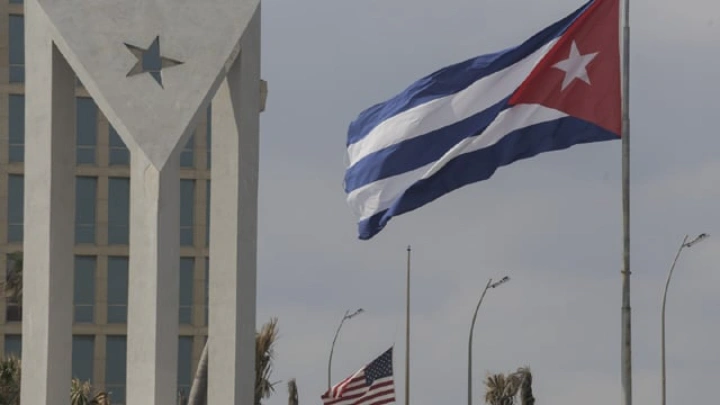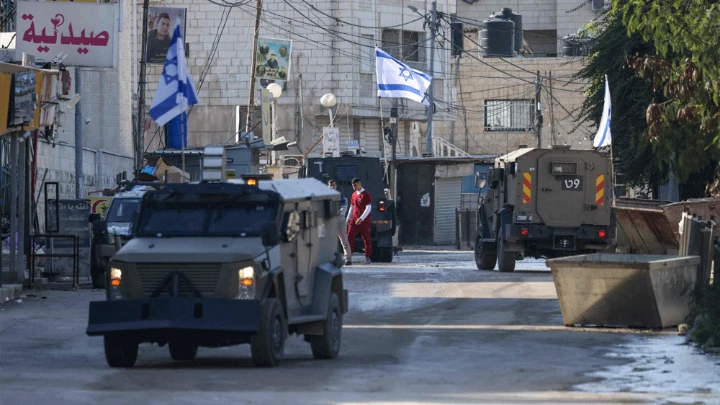Shinzo Abe's state funeral is held in Japan
Shining BD Desk || Shining BD
Security is tight in Tokyo for a state funeral for assassinated Prime Minister Shinzo Abe. Some have also protested extending the honor to the politician, amid revelations about his ties to a contentious church.
Japan is holding a state funeral on Tuesday for former Prime Minister Shinzo Abe, who was shot dead with an improvised firearm at an election campaign rally in July, just days before a national election.
Thousands of people lined up to offer flowers and prayers in Abe's honor at a mourning tent in Kudanzaka park near the site of the ceremony, the Budokan hall.
People queued to visit the mourning tent near the site of the funeral ceremony early on Tuesday, though not everybody in Japan approves of the state funeral
Tens of thousands of police have been deployed, nearby roads are closed for the day and some schools are shut.
Around 4,300 people are expected to attend the main ceremony, which began when Abe's widow, Akie Abe, entered the hall carrying an urn with her husband's ashes. Government, parliamentary and judicial representatives will make condolence speeches, including current Prime Minister Fumio Kishida, followed by Akie Abe.
Kamala Harris in attendance, Justin Trudeau had to cancel
Kishida met about 10 dignitaries on Monday, including US Vice President Kamala Harris, Vietnamese President Nguyen Xuan Phuc and Philippine Vice President Sara Duterte.
Also in attendance are India's Narendra Modi and Australia's Anthony Albanese, whom Kishida will meet with separately.
Germany was represented at the funeral by former President Christian Wulff, and France by former President Nicolas Sarkozy. The United Kingdom and Italy sent former prime ministers Theresa May and Matteo Renzi, respectively.
Canadian Prime Minister Justin Trudeau was the only G7 leader besides Kishida scheduled to attend, but he had to cancel in the aftermath of Hurricane Fiona.
Harris stressed the importance of US-Japanese relations in Asia and the wider world in talks with Kishida.
"The alliance between Japan and the United States is a cornerstone of what we believe is integral to peace, stability and prosperity in the Indo-Pacific region," the vice president said at the Akasaka Palace.
Kishida said that Abe had "poured his heart and soul" into strengthening ties between their two countries and that "I feel it is my duty to carry on his aspirations."
Shinzo Abe was 67 when he was shot dead in Tokyo this year
Who was Shinzo Abe?
Born in 1954, Shinzo Abe was Japan's longest serving prime minister. He led the country's government twice, for exactly a year starting in September 2006 and then from December 2012 until September 2020.
He was shot dead by a man using an improvised firearm — Japan's gun laws are among the strictest on the planet — at an election rally on July 8 this year. His death shocked a country unaccustomed to gun violence and led to the police chief resigning.
Abe was a contentious figure at home, not least because he saw himself as a reformer whose task it was to steer Japan away from longstanding policies and traditions he no longer considered helpful.
His so-called "Abenomics" economics program was an attempt to counter Japan's years of economic stagnation. He also called for closer ties with the US and for gradual rearmament in Japan after decades of pacifist policies in the aftermath of World War II. A staunch conservative who sometimes questioned historical allegations of wrongdoing, critics also said that his attitude to Japan's colonial past damaged relations with China and Korea.
Protests against state funeral decision as Kishida struggles
Opponents of the state-sponsored funeral, only the second of its kind for a politician in Japan since World War II, have planned rallies elsewhere in Tokyo and around the country. They argue that the money would be better spent on more meaningful causes, including alleviating the economic disparities some attribute to Abe's policies.
Demontrators gathered outside Tokyo's Shinjuku Station on the eve of the ceremony
Other criticism has centered around the ties between the Liberal Democratic Party (LDP) Abe once ran and the contentious Unification Church. According to police, Abe's killer accused the Unification Church of swindling his family out of their savings. This link has prompted further investigation of the party and the church's connections.
Kishida's decision to hold a state funeral was pushed through without parliamentary approval. Kishida said it was a way to honor the achievements of Japan's longest-serving prime minister and stand up for democracy after a murder on the campaign trail. But a recent poll by TV Asahi in Japan suggested fewer people supported the decision than opposed it.
By AFP
Shining BD

























